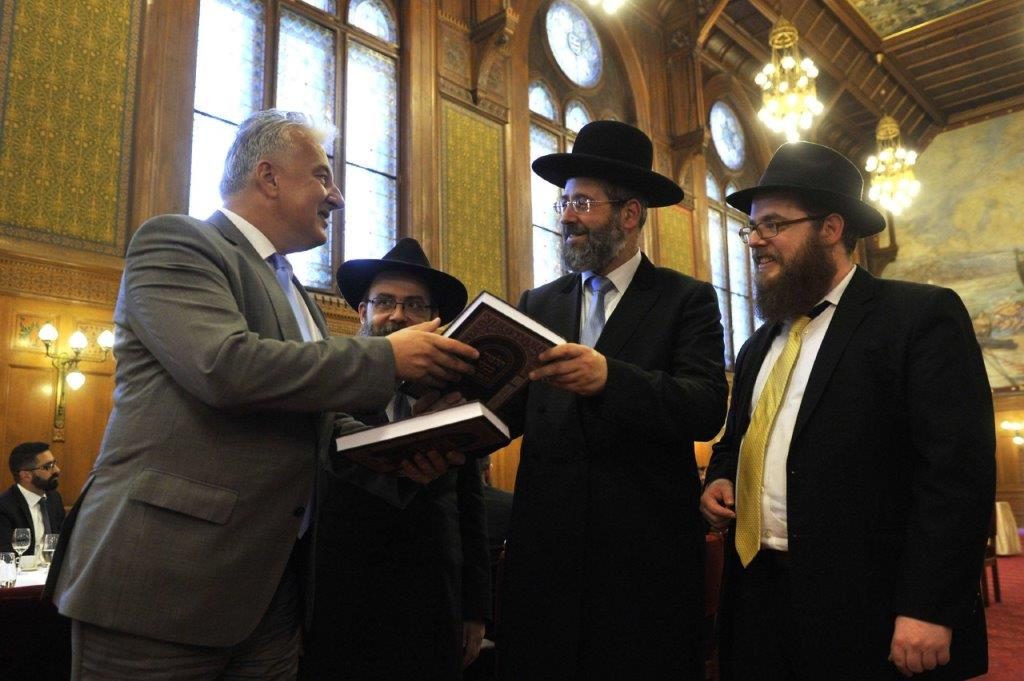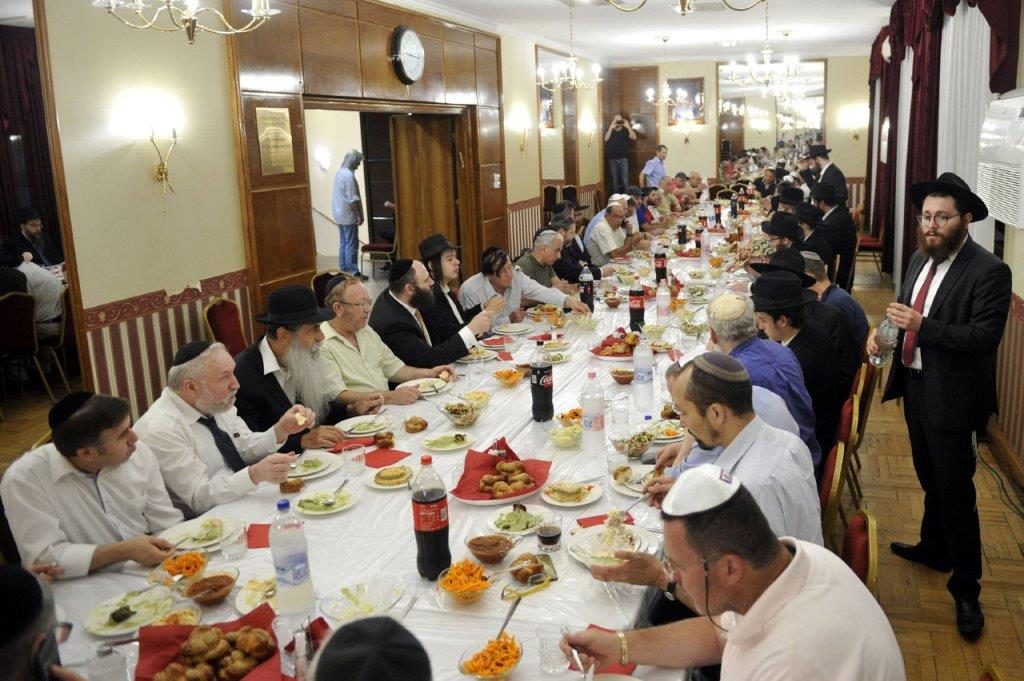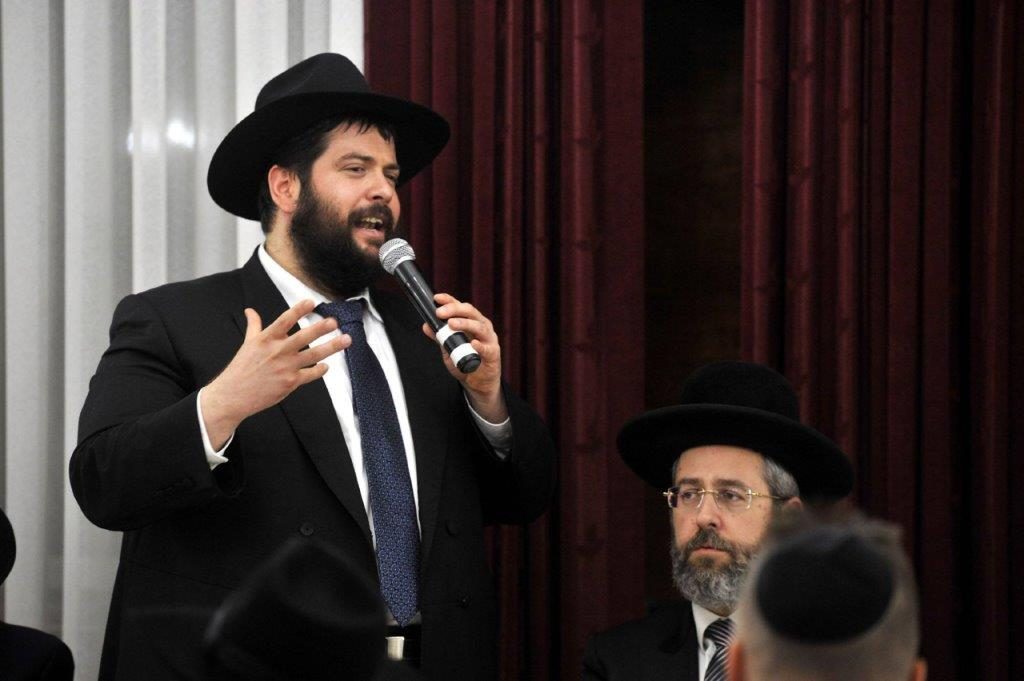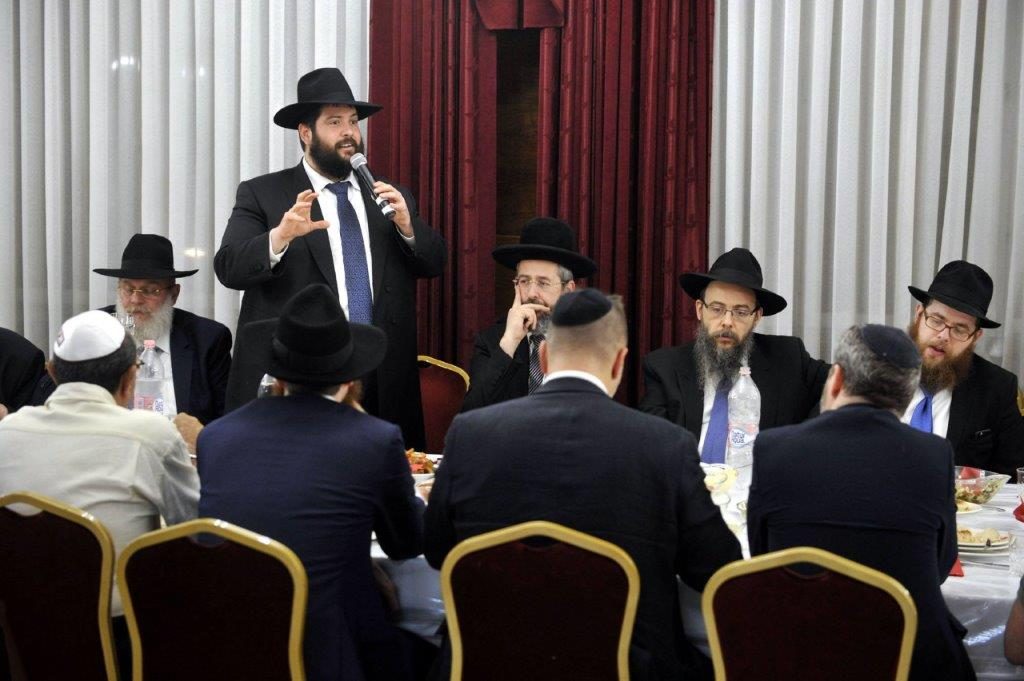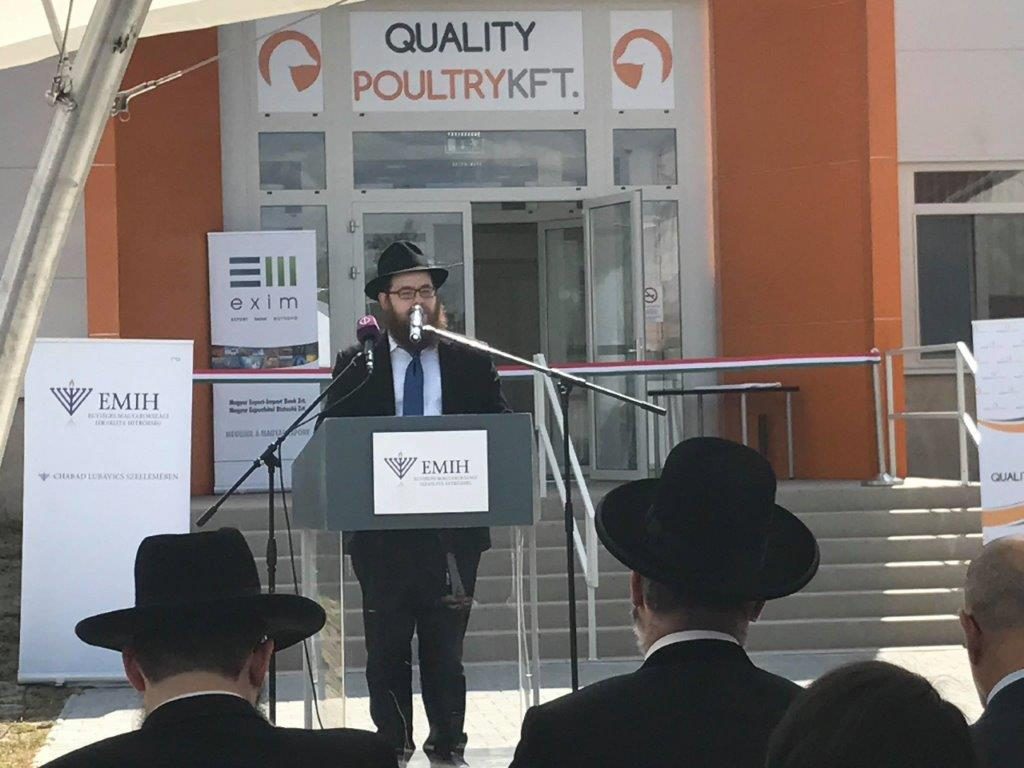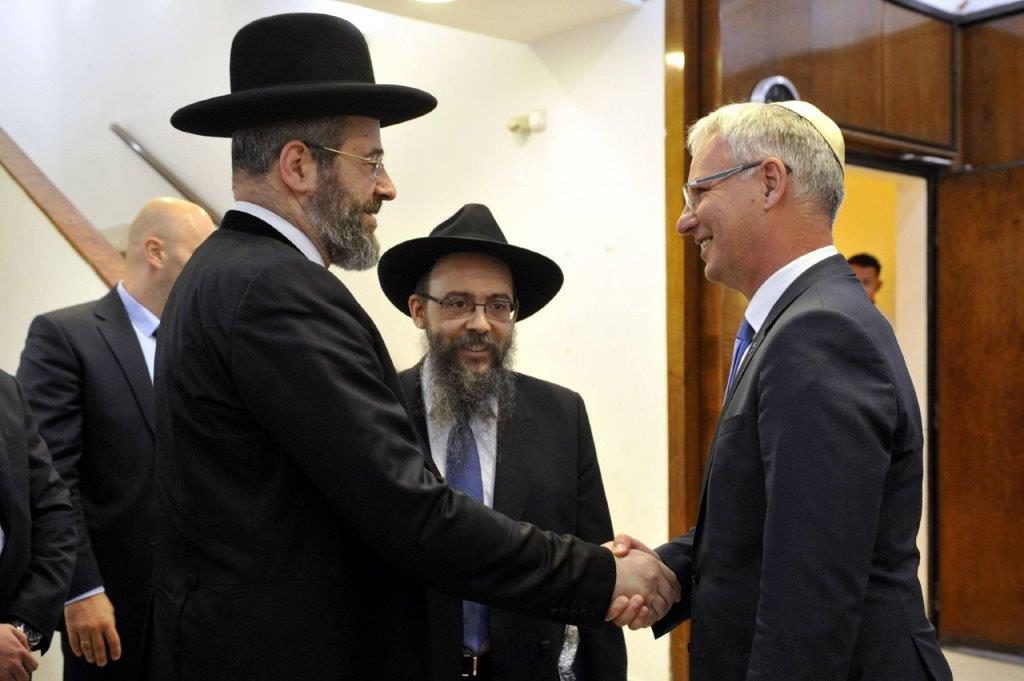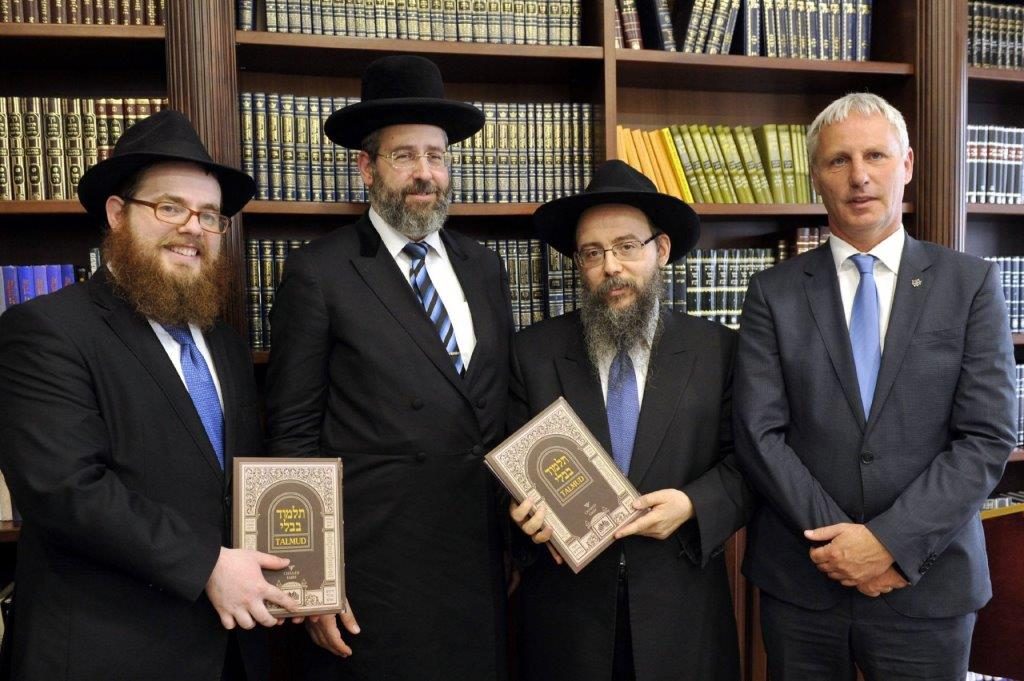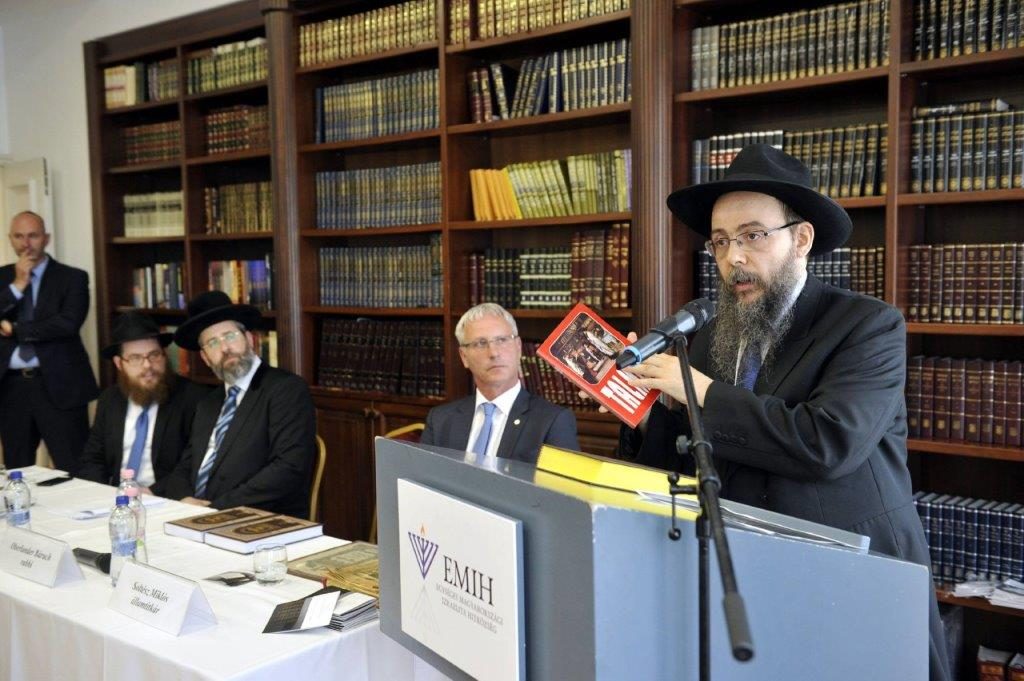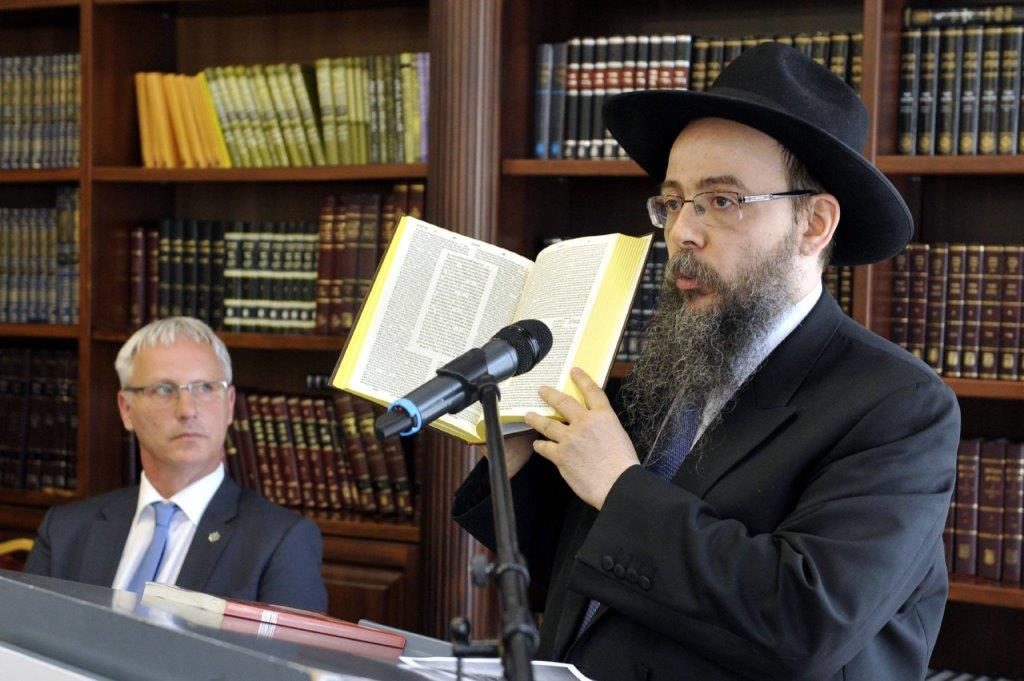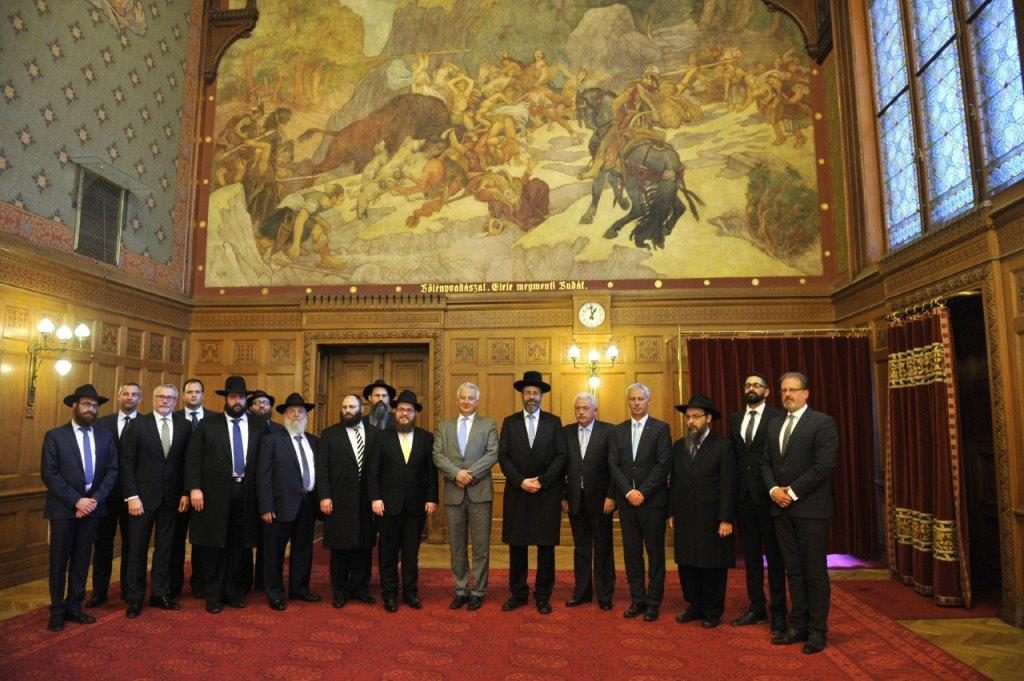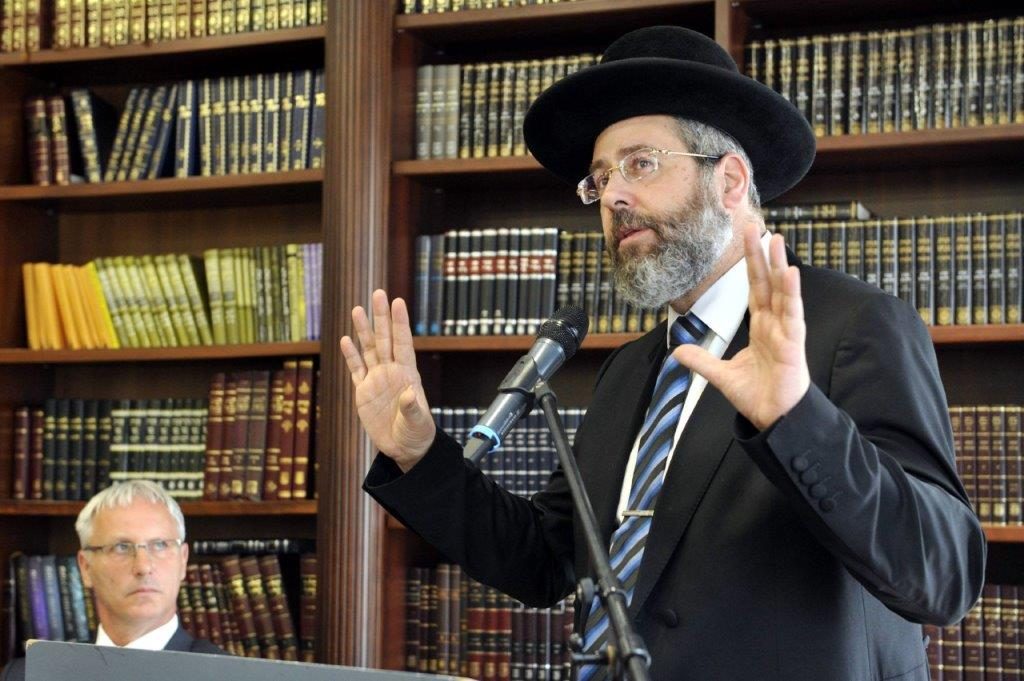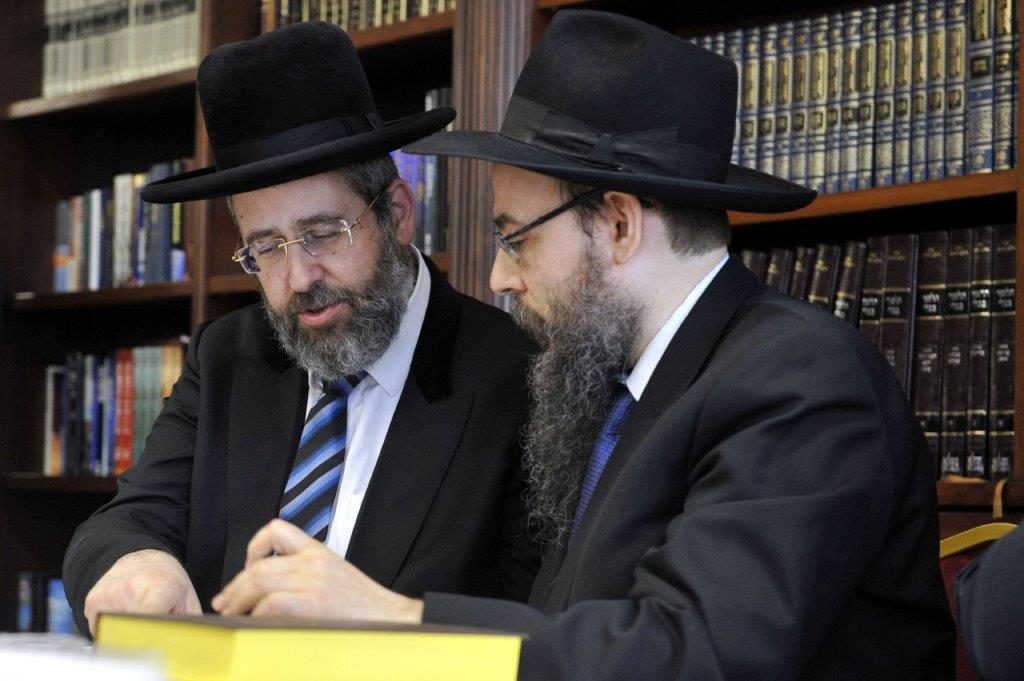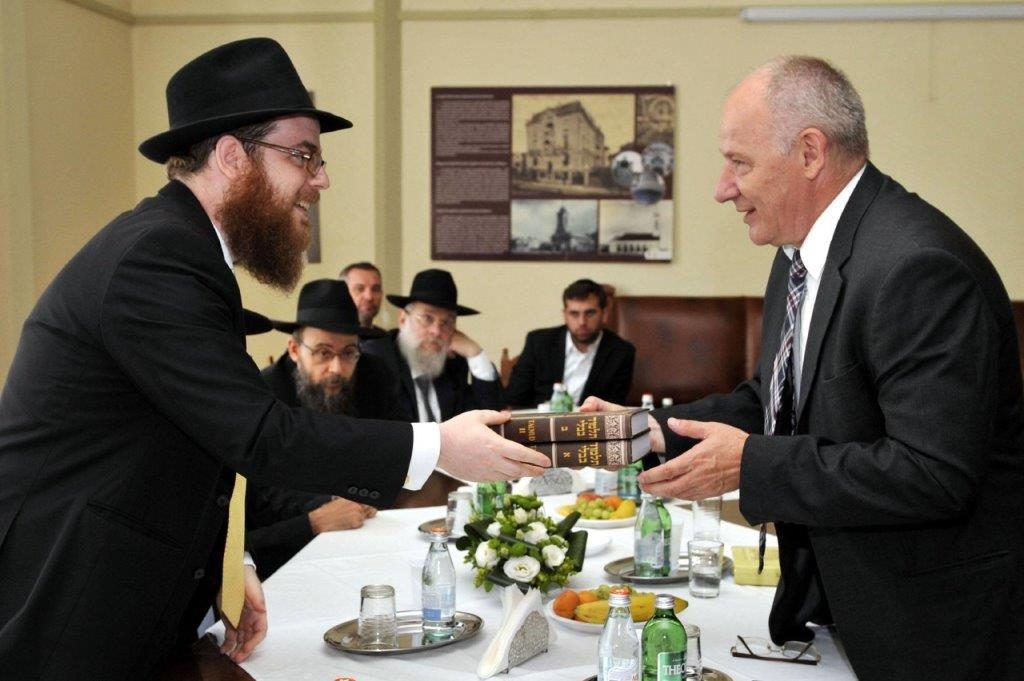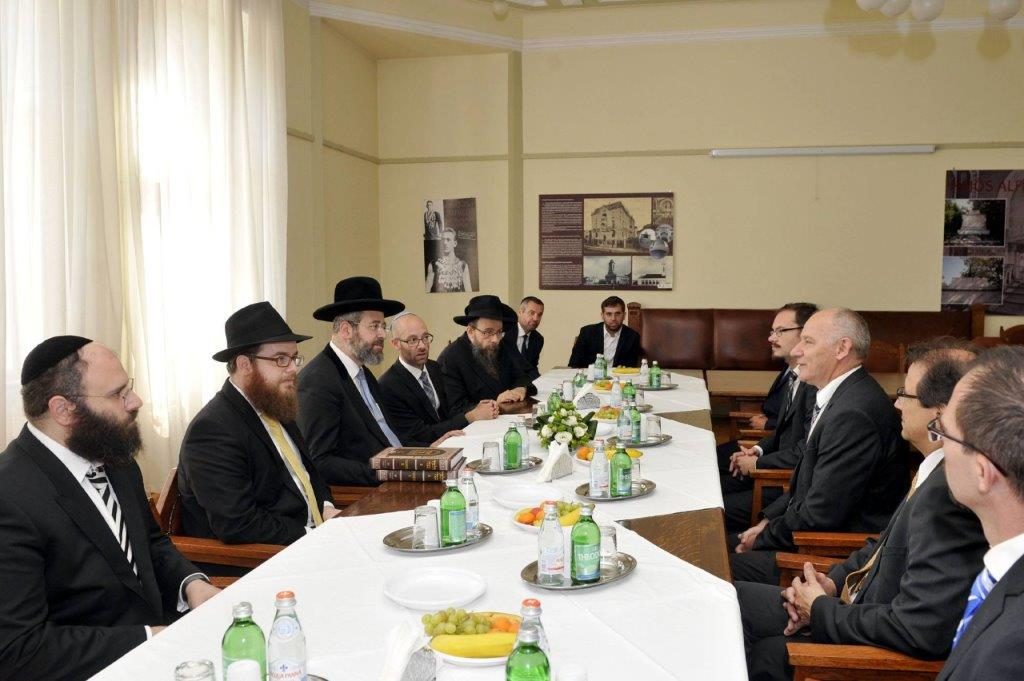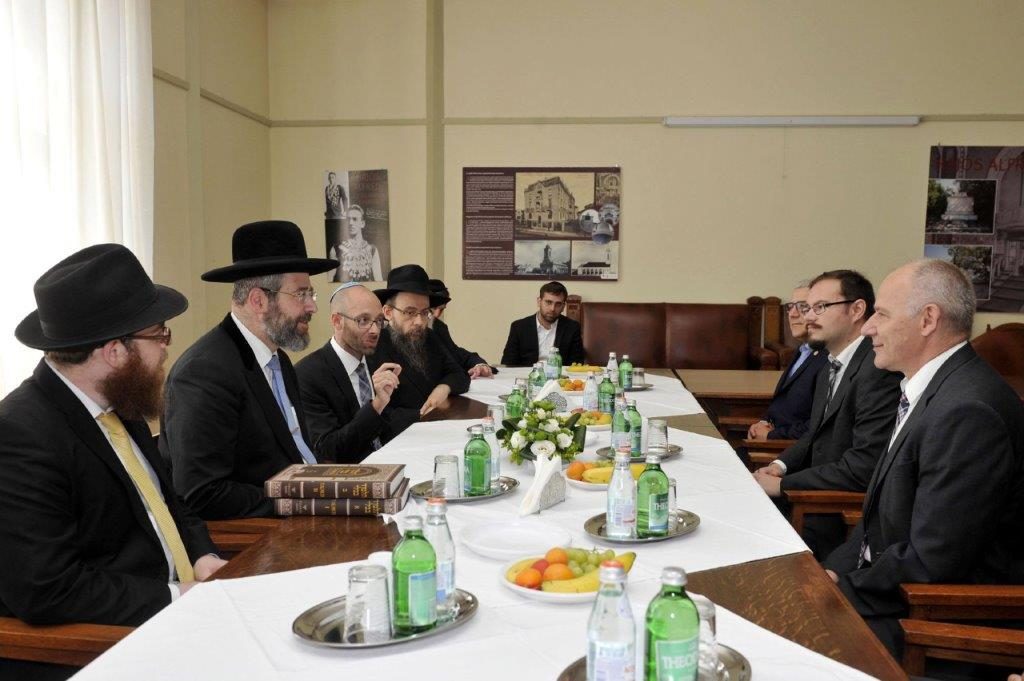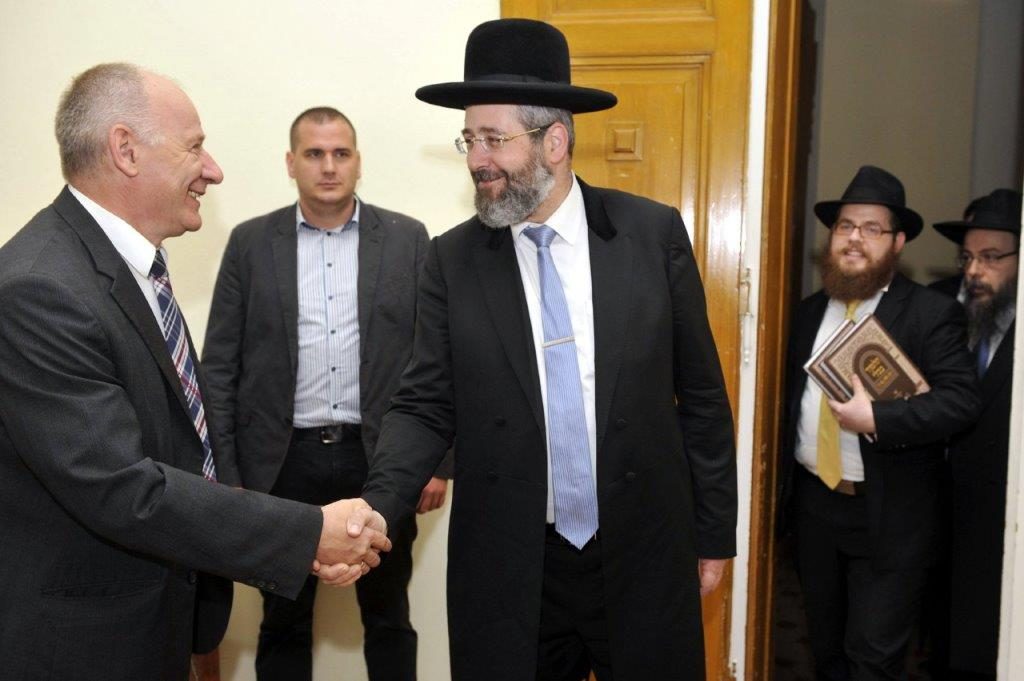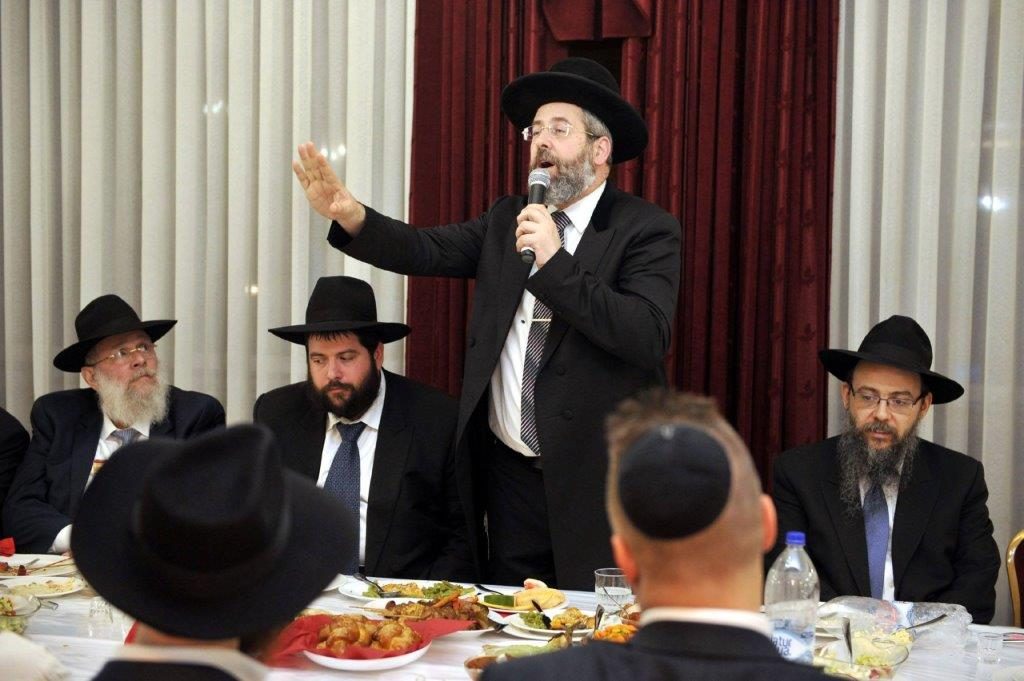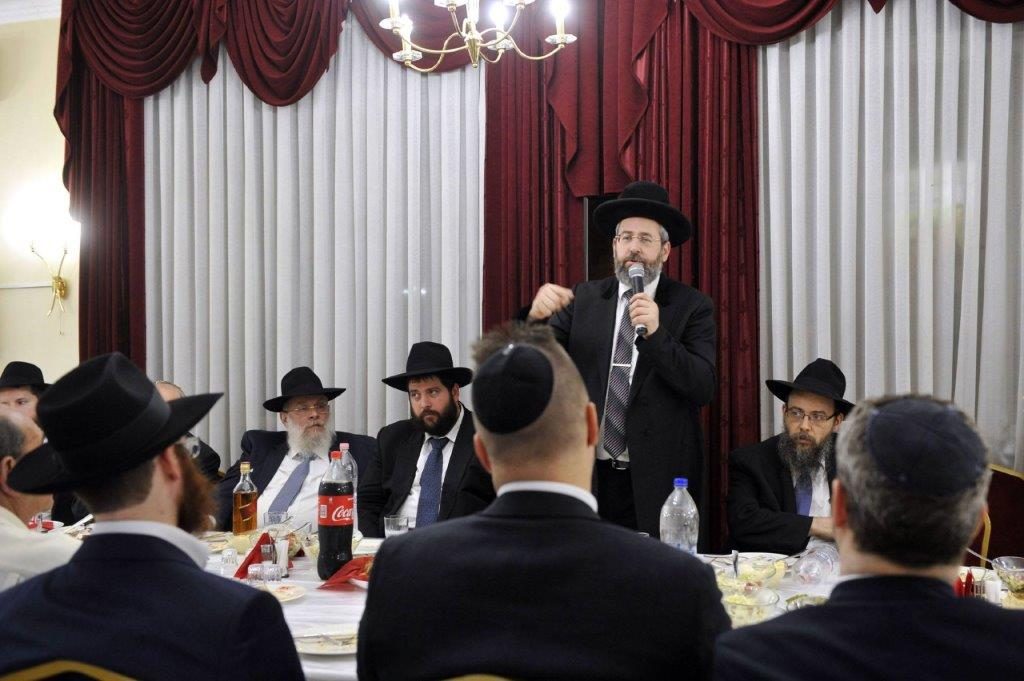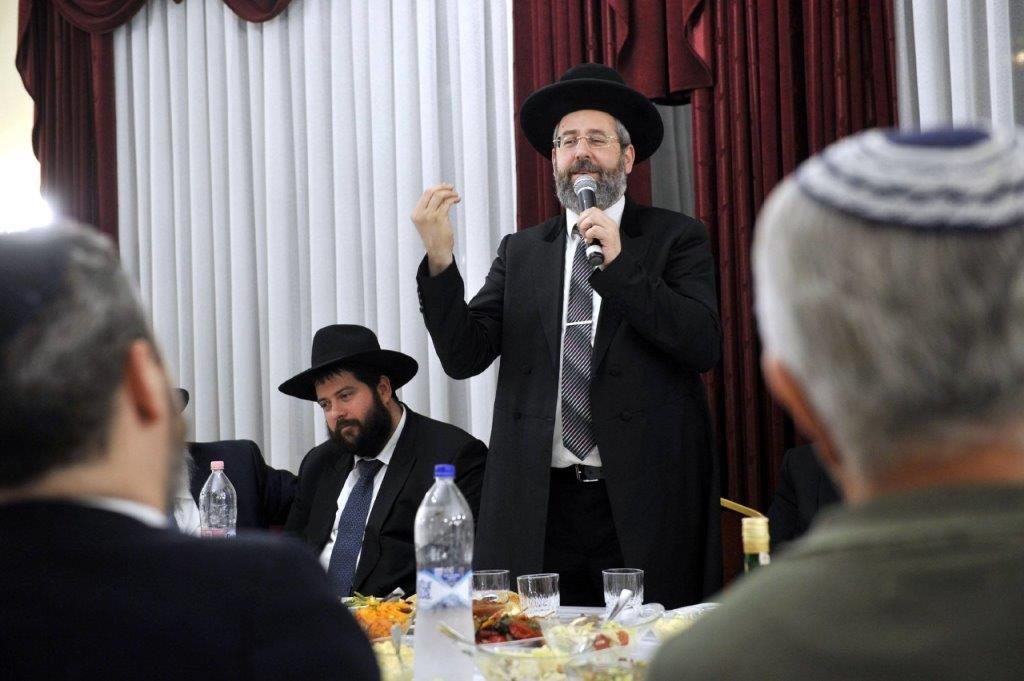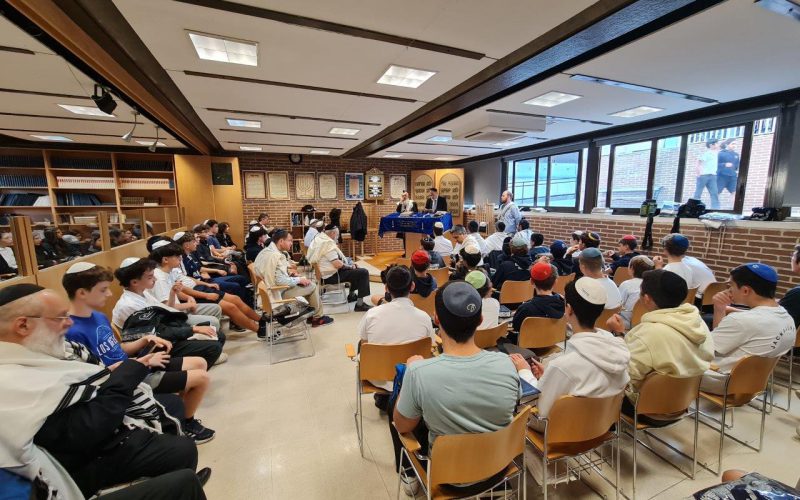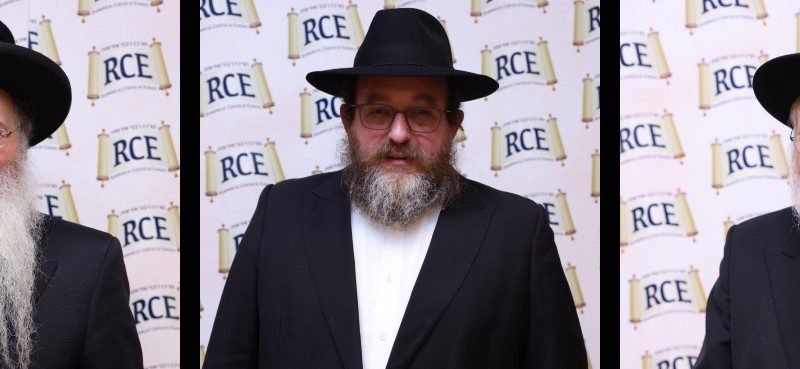Chief Rabbi Lau Visits Jewish Communities in Hungary
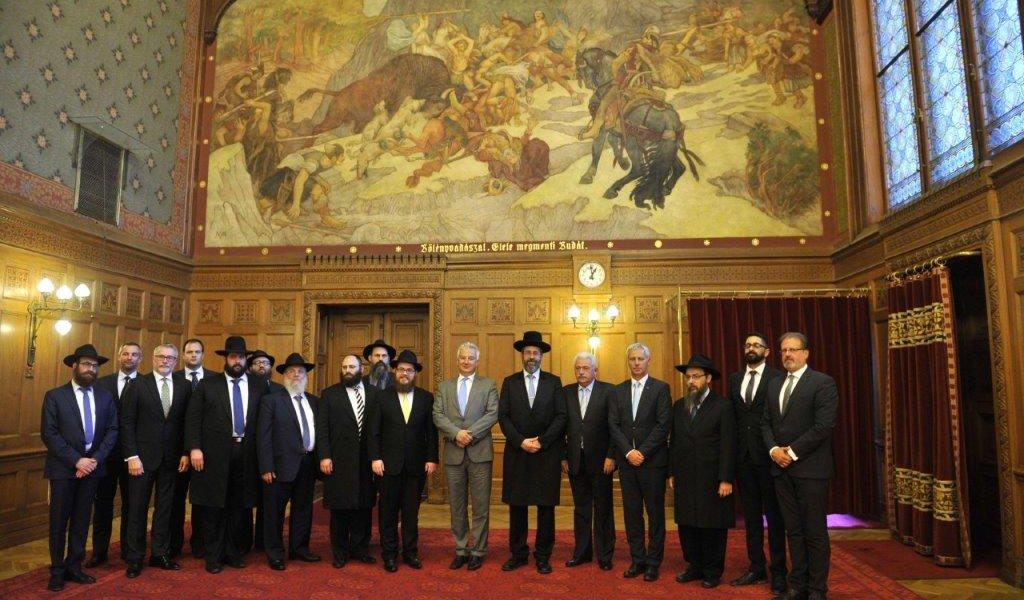
Chief Rabbi Lau expressed his deep appreciation for the supreme efforts made by the Hungarian government and its representatives to eradicate anti-Semitism, and for the fact that they allow Hungary’s citizens complete freedom of religion. In particular, he thanked them for permitting kosher slaughter in Hungary, pointing out the launching of the new goose-slaughter operation by the EMIH community.
The prime minister thanked Rabbi Lau for his kind remarks, and he promised to strengthen his ties with the Orthodox Jewish community in his country and to assist them wherever it is needed.
The Chief Rabbi’s visit, and his praise of the Hungarian government, made a strong impact throughout the country. The Fidesz party, led by Viktor Orbán, has now been elected for its second term, winning two-thirds of the seats in Parliament. At the same time, radical right-wing parties, such as Jobbik (“Movement for a Better Hungary”) are likewise active in Hungarian politics, and in the past their leaders have expressed openly racist and anti-Semitic views. It seems that because of Jobbik’s ambition to take votes from the nation’s more liberal sector, they are now refraining from any public statements against Jews or any anti-Semitic rhetoric. Another right-wing party, LMP (“Politics Can Be Different”), has a “green” ideology.
During the visit, the heads of the Jewish communities pointed out that the local government displays strong support for Jewish community activities and guarantees their safety and security. It assists Jewish educational institutions, subsidizes structural improvements for synagogues, provides security for Jewish cemeteries and does not espouse any form of anti-Semitism.
The delegation’s two-day visit began with Shacharit services at Rabbi Oberlander’s Shas-Vasvári synagogue. After enjoying breakfast in the Keren Or Chabad House, they proceeded to the first event, a presentation of the first edition of the Talmud translated into Hungarian. This was the culmination of enormous effort on the part of Rabbis Oberlander and Kovesh. The volume includes eighteen selected discussions taken from the Talmud, which are studied as part of the EMIH’s “Open University for Judaic Studies.” Besides a clear translation of the text, the volume includes footnotes to help the reader understand the subject matter.
In his remarks, Chief Rabbi Lau focused on the significance of the revival of Judaism in Hungary. He pointed out that the publication of the bilingual Talmud, a historical first, is evidence of the resurgence of authentic Jewish life brought about by the Chabad-EMIH team, who arrange programs all year long to provide Jewish education. It has thus far translated prayer books and other texts that all Hungarian communities are now using. This bit of the Torah’s light will vanquish the darkness of anti-Semitism that now threatens Europe, he declared.
Rabbi Oberlander then presented the new Talmud and explained its features, and spoke of the Talmud’s vital role in Jewish history.
After this event, the Chief Rabbi joined the local Rabbanim on a visit to the new slaughterhouse for geese, which is authorized by Israel’s Chief Rabbinate. They were given a tour by the resident mashgiach, and Rabbi Lau spent a long time examining the operations and methods used in the slaughterhouse. Afterward, the company officials began the company’s inaugural ceremony, attended by Chief Rabbi Lau, Hungary’s Agriculture Minister Sandór Fazekas, Minister of State for Parliamentary Affairs Levente Magyar, EXIM Bank’s CEO Zoltán Urbán (who financed the project), and Israel’s ambassador to Hungary Yosef Amrani. The meat-packing plant is a subsidiary of EMIH, with partners from Israel. The plant is kosher under the supervision of Israel’s Chief Rabbinate. Approximately 2,400 geese are slaughtered each day, and the meat, and especially the goose liver, are marketed worldwide.
After Rabbis Lau and Oberlander fastened mezuzot to the plant’s main doorways, Rabbi Lau spoke, giving a blessing for the plant’s success and pointing out that the existence of kosher slaughter in Hungary is testimony to the rebirth of Hungarian Jewry and the freedom and respect shown to Judaism by the government. He emphasized that EMIH is recognized by Israel’s Chief Rabbinate as the legitimate representative for all affairs pertaining to Hungarian Jewry.
That evening Rabbi Lau gave a televised interview on the subject of European Jewry. It was broadcast live by ATV and was viewed by about two million people. The RCE’s director, Rabbi Menachem Margolin, and Rabbi Shlomo Kovesh participated as well. One of the questions the interviewer asked was whether the real solution to anti-Semitism is for Jews to immigrate to Israel. Rabbi Lau replied that Israel is undoubtedly the holiest place on earth for the Jewish nation and it certainly behooves all Jews to go to live there. Nonetheless, immigrating to Israel should not be a way of fleeing Europe or a response to the fear of living there. People should come to live in Israel because they love the Land and recognize it as the Chosen Land. But certainly it is the Europeans’ responsibility to enable those Jews who remain on the continent to live without fear.
The delegation ended the day with a sumptuous meal together with the Chabad rabbis and shlichim of Hungary.
The next morning began with Shacharit at Rabbi Shlomo Kovesh’s synagogue. After breakfast there, Chief Rabbi Lau paid a visit to other clergy leaders in Hungary, and then to the office of Prime Minister Viktor Orbán. This is considered a rare honor, since the prime minister rarely meets with representatives of religions.
Viktor Orbán is a political leader with unprecedented power in this country. His party occupies two-thirds of the seats in Parliament, giving him full control to do as he pleases. Several years ago he changed the status quo, taking the exclusive control of Hungary’s Jews from the Neolog community (the Hungarian equivalent of Reform), and dividing it between the Neologs, Chabad-EMIH, and the Orthodox. This move made it possible to establish new synagogues and to introduce all sorts of Jewish activities. Rabbi Baruch Oberlander pointed out that Mr. Orbán has great respect for religious values, and it is this attitude that is behind his meaningful cooperation with the EMIH community. Rabbi Lau told the prime minister that Israel’s Chief Rabbinate considers the ruling party’s relationship with EMIH to be a wonderful thing.
Rabbi Lau brought up the issue of four synagogues. One is located in the vicinity of the Buda Castle; one in District 11 (which was the last synagogue dedicated before the Holocaust); a new community center in District 13; and an ancient synagogue, also in District 13, which is currently being used to train Hungarian army troops in sword-fencing. Rabbi Lau requested in the name of Rabbi Kovesh, who is an official chaplain in the Hungarian army, that the building be returned to Jewish hands so that it can be used as a synagogue for soldiers in the Hungarian army.
Afterward, Rabbi Lau toured the local Parliament and had lunch in royal style at the invitation of Zsolt Semjén, who, on behalf of his government, had officially invited the Chief Rabbi to visit Hungary. The heads of the local Jewish communities also participated. Mr. Semjén has served as deputy prime minister for seven years, and he is the head of the Christian Democratic Party (KDNP). For many years he has been the liaison between religious leaders in Hungary and those in other countries. About three years ago he was in the office of the Chief Rabbinate in Yerushalayim and invited the Chief Rabbi to make an official visit to Hungary.
The leaders of Hungary’s Jewish communities pointed out to Rabbi Lau that, with large numbers of Syrian refugees making their way to Europe in recent times, the Hungarian government built a wall along its borders and expelled all illegal immigrants to other Western European countries. In this way it kept away the threats facing European Jewry in other countries from the radical Muslim fringe. As a result of this step, the prime minister is constantly at odds with the European Union, which insists that he must share in the burden of absorbing the Muslim refugees.
They also described the current situation of Hungarian Jewry. There are approximately 100,000 Jews there, with the vast majority living in Budapest, and several hundred in nearby towns. According to Rabbi Oberlander, about 85 percent of Hungarian Jews are assimilated and have no connection with the Jewish community. Assimilation in Hungary began some 150 years ago, and was exacerbated by the Nazi Holocaust and forty years under Communist rule.
Apparently it is because of this that, in 2011, the government passed a law recognizing three branches of Hungarian Jewry, and it divided the synagogues and Jewish institutions accordingly. Chabad activity began with the arrival of Rabbi Oberlander and his wife, who were sent by the Lubavitcher Rebbe, zy”a, in Av of 1989, to serve in a rabbinic capacity and to begin the process of bringing Jews back to Torah life. After fifteen years of fruitful activity, the Jews who had adopted a true Jewish life formed EMIH, the United Jewish Community of Hungary, under the leadership of Rabbi Shlomo Kovesh, a native Hungarian and a disciple of Rabbi Oberlander.
Today, Chabad-EMIH sponsors twelve Rabbanim and shlichim in Hungary. Some of them are native Hungarian baalei teshuvah who studied in yeshivos in other countries. They serve in seven different communities, as rabbis and teachers for young children as well as for adults, serving thousands of Jews.
The Badatz D’kehillos Hachareidim of Budapest serves the Jews of Budapest by rendering halachic rulings for issues that arise, and it governs Jewish marriages and divorces, besides adjudicating financial disputes. The Badatz also runs a kashrus organization that certifies kosher status for several Budapest restaurants and food-production factories throughout Hungary, besides overseeing kosher slaughter that meets the highest standards. Rabbi Oberlander, rabbi of Chevra Shas-Lubavitch congregation, is the head of the Badatz.
The Chabad community in Budapest boasts the world’s largest library of Torah texts translated into modern Hungarian. Since 1996, a full siddur with an all-new translation has published, as well as machzorim for Rosh Hashanah and Yom Kippur, a Pesach Haggadah with commentaries, the complete Chumash, a collection of choice passages from Rashi’s commentary on the Torah, and more. Most recently, they have published the Eighteen Talmudic Discussions, a two-volume work on Talmud. Soon to appear is a new siddur with translation and transliteration, and work has begun on translating the entire commentary of Rashi on the Torah.
The Chabad kashrus division provides kosher slaughter, chalav Yisrael milk and dairy products, and pas Yisrael, and it certifies restaurants and institutional kitchens, as well as factories seeking to export their products abroad.
New Jewish centers in Debrecen and Miskolc, and three in Budapest, are in the process of becoming certified kosher. Moreover, the Rambam high school and university plan to open their doors for the coming school year.
In addition to the Chabad community, the Orthodox Great Synagogue on Kazinczy Street has dozens of members and is an attraction for the many Jewish visitors to Budapest. The adjacent community center sponsors the Chana soup kitchen, and it includes two other synagogues and an old-age home on Alma Street. The community also provides kosher slaughter, and a mikveh that it built with significant assistance provided by Rabbanit Oberlander in 2004. Almost 100 children attend its kindergarten and elementary school, and most of them are considered Jewish by halachic standards. The president of this community is Mr. Eduard Deblinger.
